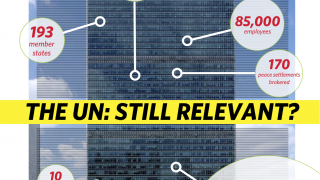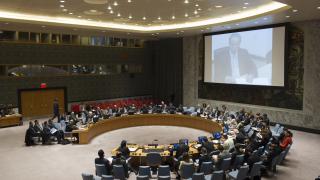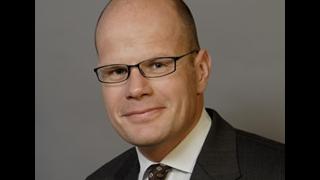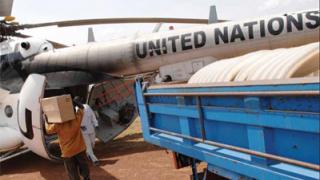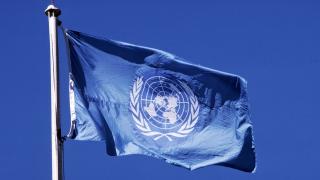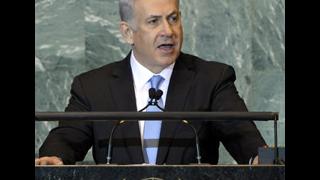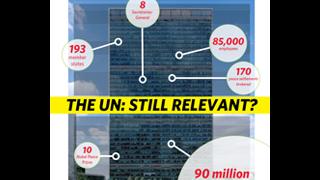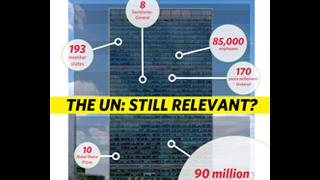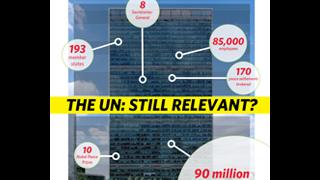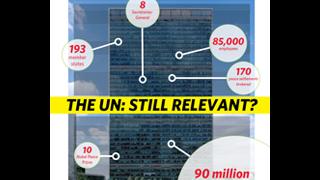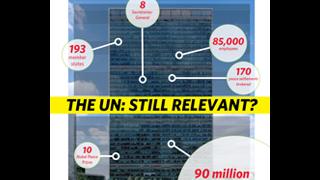
Thomas G. Weiss argues member states should take their share of the blame for the UN's failings
Le machin, "the thing", is what Charles de Gaulle famously dubbed the United Nations, thereby dismissing international co-operation as frivolous in comparison with the red meat of international affairs, realpolitik. He conveniently ignored that "the thing" was formally born not in 1945 when the UN Charter was signed, but in 1942 when the "Declaration by United Nations" was adopted.
Almost 70 years later, many observers – undoubtedly even readers of New World – forget that the 26 countries that defeated fascism anticipated the establishment of the world organisation as an essential extension of their wartime commitments. These were not pie-in-the-sky idealists. The UN system was not viewed as a liberal plaything to be tossed aside when the going got tough, but a vital necessity for postwar order and prosperity.
The Beatles once asked: "Will you still need me, will you still feed me, when I'm 64?" This UN Day, the world body turns 66, and many think it should have taken early retirement like other baby boomers.
The late Richard Holbrooke, perhaps best known as the architect of the 1995 Dayton peace accords that ended the conflict in Bosnia, had an answer to this argument. Blaming the UN for a lousy performance, he said, is like blaming the New York Knicks' failures on Madison Square Garden, the arena where that hapless basketball team has played for years. What Holbrooke meant, of course, was that governments sometimes make quick use of the world organisation's arena and demonstrate the political will to act. And sometimes they don't.
This year, the UN once again proved its centrality, in Libya and, belatedly, in Côte d'Ivoire. Security Council Resolution 1973 led to prompt, robust, and effective international action that shielded Libya's people from the kind of murderous harm that Muammar Gaddafi inflicted on unarmed civilians in March 2011, and continued to menace against his internal opponents, to whom he referred as "cockroaches" (a word that was, incidentally, also used by the genocidal Rwandan regime in 1994 to describe its Tutsi victims).
It is too early to declare victory in Libya, but decisions in the region as well as in London, Paris, Washington, and Brussels made a huge difference. As the situations in Tripoli and across the wider Middle East evolve, acute dilemmas will remain for humanitarians and policymakers. If the Libyan intervention goes well, it will strengthen the UN and give more teeth to the fledgling "responsibility to protect" (R2P) doctrine. If the Libyan intervention turns sour, it will redouble international opposition to R2P and make future decisions more difficult. But for the moment, spoilers are on the defensive.
And the contrast with West Africa is instructive. The installation of Alassane Ouattara as Ivorian president, ousting the incumbent Laurent Gbagbo, finally occurred after half a year's dawdling, as an unspeakable disaster unfolded in Côte d'Ivoire. Three times in March 2011 alone, the Security Council censured Gbagbo, who lost the November 2010 elections, and repeated its previous authorisation to "use all necessary means to carry out its mandate to protect civilians". But the UN Operation in Côte d'Ivoire did very little until belatedly the French Operation Licorne members of the mission intervened, signalling the end of the strongman's tenure and shifting the local balance of power.
Until then, international unwillingness to use armed force had abetted Gbagbo's intransigence. Was it really necessary to suffer war crimes, crimes against humanity, 1m refugees, and a ravaged economy? No, but governments hesitated before finally doing something.
Political spinelessness aside, the UN itself – from its Secretary-General on down – could, of course, be made trimmer and more effective. After decades of calling for it, eyes now glaze over at the mention of "UN reform". As Mark Malloch Brown quipped when stepping down as Deputy Secretary- General, the UN is the only institution where, over coffee or around water coolers, reform is a more popular topic than sex. Yes, reform is much needed, but even more necessary is the political will to use the UN for many of the purposes for which it was created.
The New York Knicks finally made the post-season tournament last year, still playing in Madison Square Garden. And Libya and Côte d'Ivoire suggest that governments can use the UN's arena in Manhattan, reformed or not, to demonstrate that it is not quixotic to make the world organisation occasionally function the way it was intended.
Thomas G. Weiss is Presidential Professor of Political Science and Director of the Ralph Bunche Institute for International Studies at The City University of New York's Graduate Center and author of the books What's Wrong with the United Nations and How to Fix It and Thinking about Global Governance: Why People and Ideas Matter

